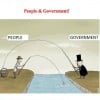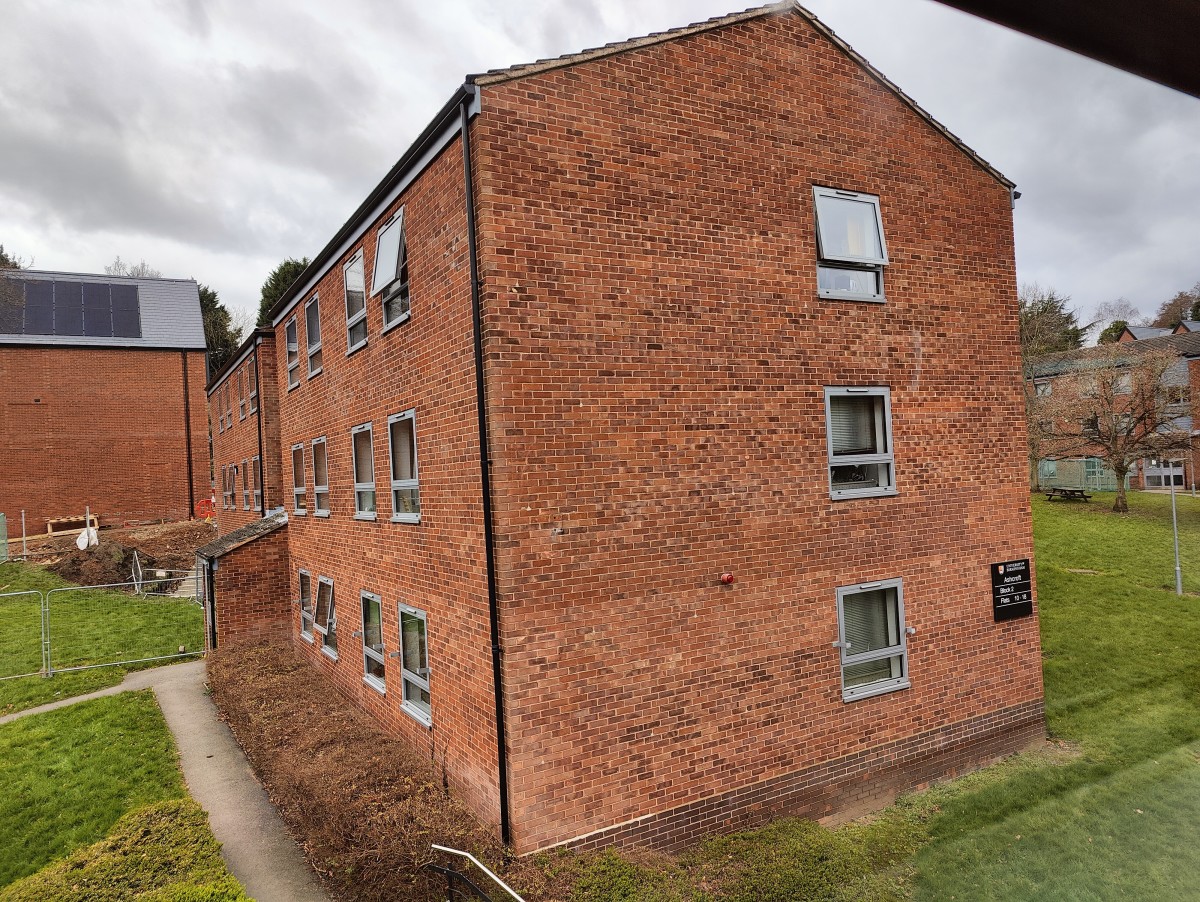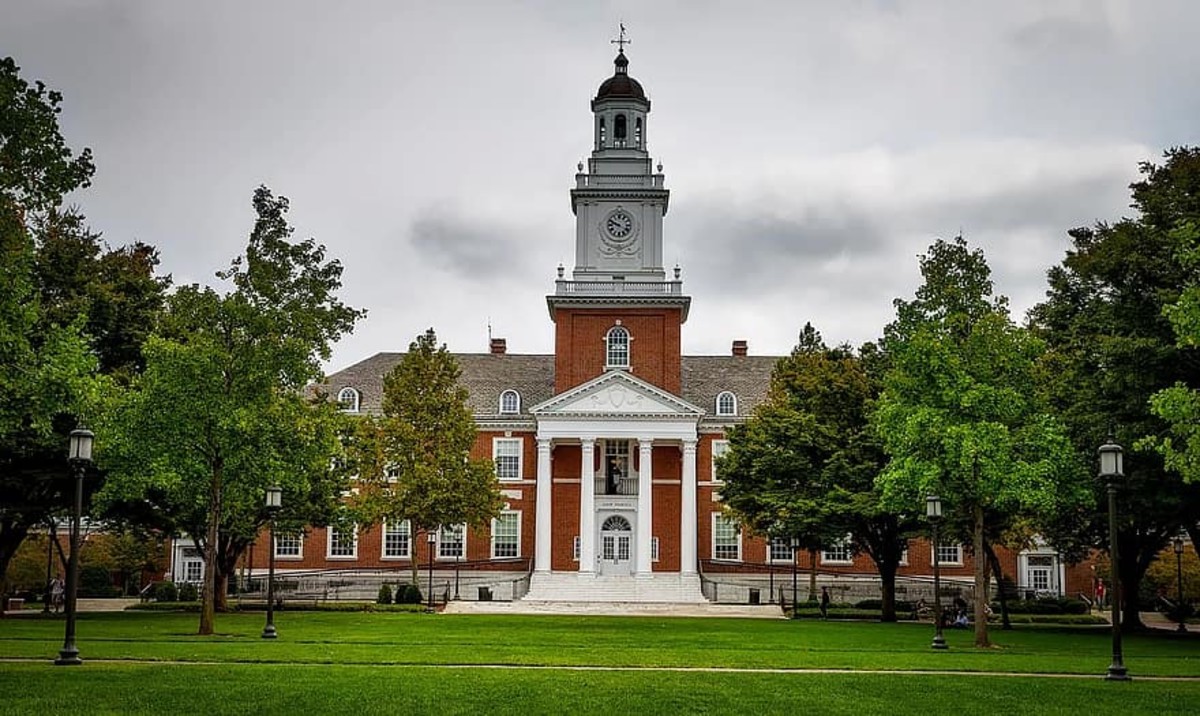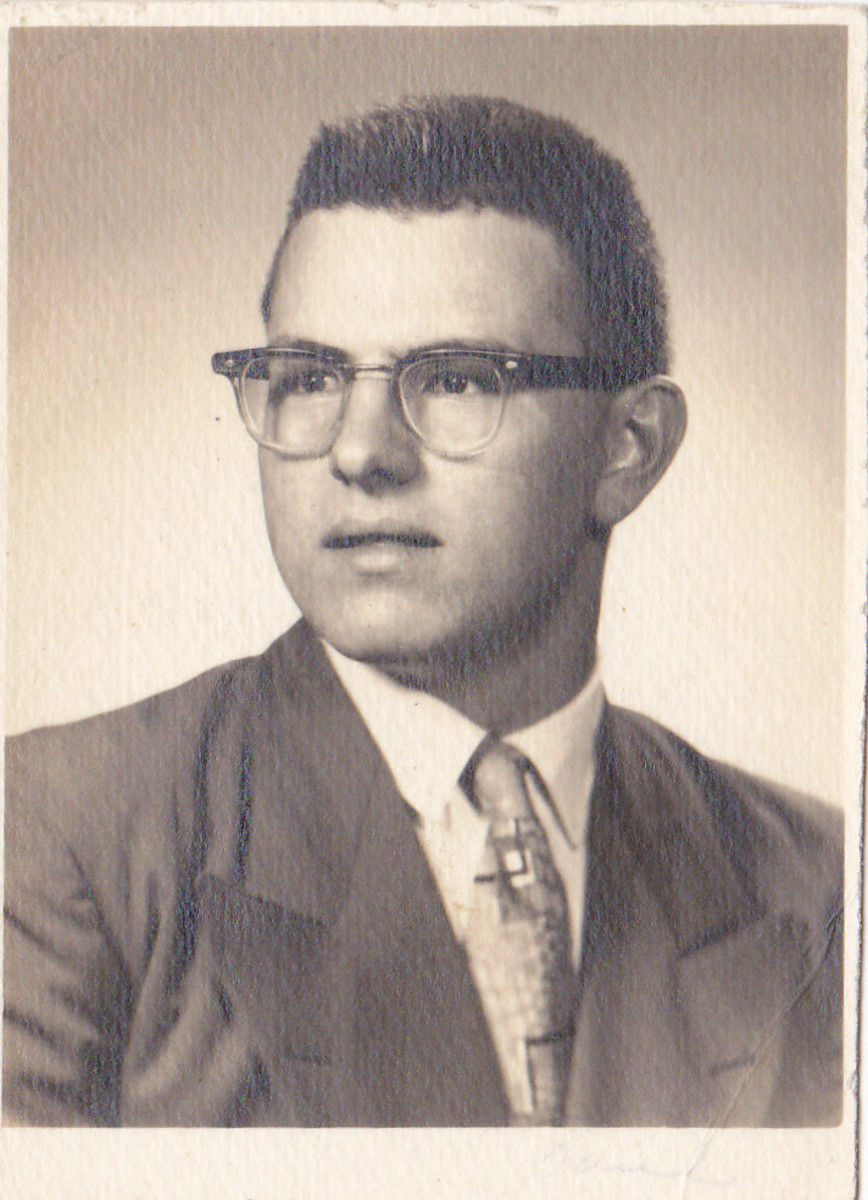Safe Spaces Will Only Produce Snowflakes
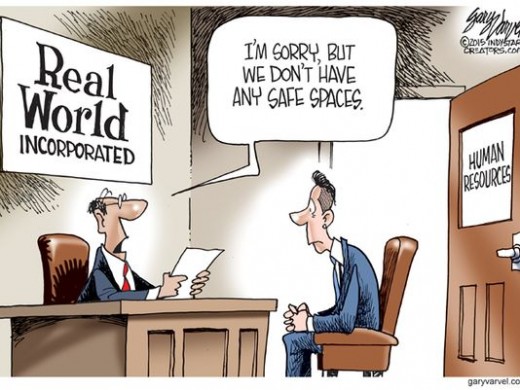
The University of Chicago Takes An Obvious Stand
As the summer is now unofficially over, America’s youth are going back to school. While most universities bow down to the safe space-trigger warning culture that is running rampant on college campuses, the University of Chicago took an important stance in its acceptance letter to the incoming class of 2020.
“Our commitment to academic freedom means that we do not support so-called trigger warnings, we do not cancel invited speakers because their topics might prove controversial, and we do not condone the creation of intellectual ‘safe spaces’ where individuals can retreat from ideas and perspectives at odds with their own,” wrote John Ellison, dean of students.
It is alarming that an institute of learning needs to come out and say something so obvious. Mary Katharine Ham, senior writer for The Federalist, wrote that it was “a sad commentary on higher education that this is considered a brave and bold move, but it is, and the University of Chicago should be applauded mightily for stating what used to be obvious.” The University of Chicago has always been open to free expression and thought on campus, allowing any and all ideas to be heard, as colleges should. Back in 1932, the Communist Party candidate for president, William Z. Foster, spoke on the city’s campus, despite much harsh criticism.
This troubling trend of not confronting any ideas that counter your own and silencing them is something that must be reversed. America’s young adults cannot continue to be coddled throughout college. The working world will not be so kind and accommodating.
The Western world is so obsessed with political correctness and sensitivity at the moment that the University of East Anglia outlawed sombreros in a Mexican restaurant and caused the National Union of Students to ban clapping as “as it might trigger trauma”, asking students to use “jazz hands” instead.
Former New York City Mayor Michael Bloomberg was blasted for taking a stance against this last summer. He was booed during a commencement address when he criticized "safe spaces." Bloomberg said during the commencement address at the University of Michigan that "keeping an open mind to new ideas is essential to your professional success — just as it's crucial to our collective future as a Democratic society." One would think this is obvious for these kids seeking a well-rounded education and preparation for entry into society. Unfortunately, it’s not.
"The fact that some university boards and administrations now bow to pressure and shield students from these ideas through safe spaces, code words and trigger warnings is, in my view, a terrible mistake," Bloomberg concluded. The safe spaces are unhealthy and not helping these kids develop or reach their full potential. Liberals of all stripes are coming out and realizing that this has all gone a bit too far.
In a May 2015 piece, Kirsten Powers lamented over how liberals have ruined college. The silencing of free speech on campus is about as illiberal as you get. Yet, it continues apace. Almost always, a liberal on a college campus is offended by something, and no matter how small, they can do anything and everything in their power to remove that from their line of sight simply because they have been “wronged.”
In a 2014 interview with New York Magazine, comedian Chris Rock told journalist Frank Rich that he had stopped playing college campuses because of how easily the audiences were offended. He realized this all the way back in 2006 when he said, “This is not as much fun as it used to be.” Rock attributed it to “Kids raised on a culture of ‘We’re not going to keep score in the game because we don’t want anybody to lose.’ Or just ignoring race to a fault. You can’t say ‘the black kid over there.’ No, it’s ‘the guy with the red shoes.’ You can’t even be offensive on your way to being inoffensive.” Sadly, Rock admits that this climate of oversensitivity and safe spaces has forced him and many others into self-censorship.
The stifling of contrary ideas to this radical Left taking over our higher education is working. But, has it gone too far?

The Left and the Right Answer
Powers believes it has. She fears for where Millennials will go if they are not challenged before reaching the working world. “Higher education should provide an environment to test new ideas, debate theories, encounter challenging information, and figure out what one believes. Campuses should be places where students are able to make mistakes without fear of retribution. If there is no margin for error, it is impossible to receive a meaningful education.” If things continue down this current path, we could have hordes of young men and women woefully unprepared for the harsh realities of today’s job market.
College is a snapshot in time. If one is not challenged and presented with controversial ideas and subjects there, one will go through life a perpetual bubble boy (or girl). As our culture continues to prioritize conformity over individuality, we will continue to churn out unprepared young adults, betrayed by an overly cautious collegial system.
The buzzwords of this contemporary movement are “safe spaces,” “trigger warnings,” and “cultural appropriation.” When a society reaches a certain level of affluence, it runs out of things to be upset about. In the 1960s, the antiwar students protested American interventionism around the world, while fighting for free speech and attempting to pull back the “Establishment.”
Times have certainly changed.
Unfortunately, administrators at these American universities treat the student as the all holy consumer who can do no wrong.“There's the idea – not so new,” notes Greg Lukianoff, president of the Foundation for Individual Rights in Education, “of the student as customer, a high tuition-paying consumer college administrators don't want to agitate.” In addition to that, the spread of social media and the Internet have made young people used to receiving immediate responses to even the smallest of grievances. The 24-hour news cycle in which one can have one's views immediately reaffirmed does not help things either.
This kind of suppression is shocking to see at a place where learning is supposed to be the number one priority. "It's been frustrating, watching the sort of speech shift over from administrators to students," said Lukianoff, also the author of Unlearning Liberty: Campus Censorship and the End of American Debate. "Students should be aware that these tools are not always going to be on their side," he added, referring to students seeking to quell hurtful speech and expression.
This kind of removal from any kind of worthwhile debate is playing itself out in today’s political reality. Liberals watch MSNBC and CNN and call conservatives stupid or racist. Conservatives watch Fox News and call liberals softheaded and divorced from reality.
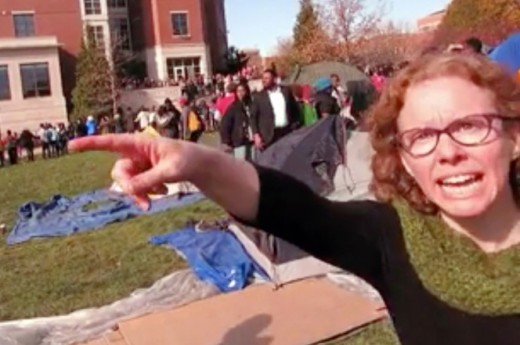
Do you think the safe space / trigger warning culture has gone too far on college campuses?
A Chilling Effect
Conor Friedersdorf wrote a piece in The Atlantic recently about how political correctness chills free speech on campus through the story of Shimon Dotan, an award-winning filmmaker. Dotan recently finished a documentary titled, “The Settlers,” which chronicles the history and current reality of the religious settler movement in the West Bank where over 400,000 Israeli Jews live on occupied land. The New York Times called it “one of the first close-up views of the motives and personalities in a group that rarely opens up to outsiders.”
Still, despite this glowing review from the mouthpiece of the Democratic Party and an invitation to show the film at “The Place of Religion in Film” conference, the screening will not take place. As too often happens these days, politics took priority over furthering students’ understanding of a complex issue.
The invitation originally came from William Blizek, professor of philosophy and religion at the University of Nebraska. Yet, a few weeks later, in late June, Professor M. Gail Hamner, a member of the Syracuse University Religion Department, emailed to renege on the invitation:
“I now am embarrassed to share that my SU colleagues, on hearing about my attempt to secure your presentation, have warned me that the BDS (Boycott, Divestment, Sanctions) faction on campus will make matters very unpleasant for you and for me if you come. In particular my film colleague in English who granted me affiliated faculty in the film and screen studies program and who supported my proposal to the Humanities Council for this conference told me point blank that if I have not myself seen your film and cannot myself vouch for it to the Council, I will lose credibility with a number of film and Women/Gender studies colleagues. Sadly, I have not had the chance to see your film and can only vouch for it through my friend and through published reviews.
Clearly I am politically naive. I also feel tremendous shame in reneging on a half-offered invitation.
I do want to stress that my colleague who Chairs our SU Jewish Studies program, Zak Braiterman, was fully willing to strongly support your coming, even though he too has not yet screened your film.
Obviously, my decision here has nothing to do with you or your work, and nothing to do with Bill, who contacted you in good faith. I feel caught in an ideological matrix and by my own egoic needs to sustain certain institutional affiliations.”
Boycott, Divestment, Sanctions (BDS) is a Palestinian-led movement for freedom, justice and equality. BDS upholds the principle that Palestinians are entitled to the same rights as the rest of humanity, according to its website. Dotan would not take this rejection lying down though.
“My concern,” he wrote to the colleague who originally invited him, “is that Gail Hamner rejected the idea of inviting the film without seeing it! She didn't even ask to see it. All she was concerned about is that BDS activists may not be happy with the screening of an Israeli film at Syracuse. That is really troubling. And that happens at a University, at a temple of freedom of speech, or so we want to believe.” Professors and administrators continuously put the needs of the offended over the desires of those there to learn. But wait, there was more.
As Dotan put it in an email to Hamner:
“I empathize with the tough political spot you felt yourself to be in. The forces that chill speech and action on college campuses are real and not of your making. At the same time—and I am open to being persuaded I'm wrong on this, but I wonder if you agree—it seems wrong to me to disinvite someone from an academic conference because of political pressure. And there are some who continue to deny that chilling effects like this exist.”
The fact that this film was excluded due to the possible perceived risk of retaliation by a small group of activists should chill this country to its core. Millions have fought and died to defend this country so that we could have the freedom to say whatever we want and to be able to debate important matters facing the world. Unfortunately, liberal educators don’t see it that way.
In a final irony of this story, Friedersdorf reveals that the film actually “portrays the settlements in a negative light, and is skeptical, at the very least, toward many settlers.” If the hypersensitive faculty would simply take a chance or watch the film, they would have realized the absurdity of it all. Sadly, no one at this film festival will learn anything new, as only leftist-approved items will be included.
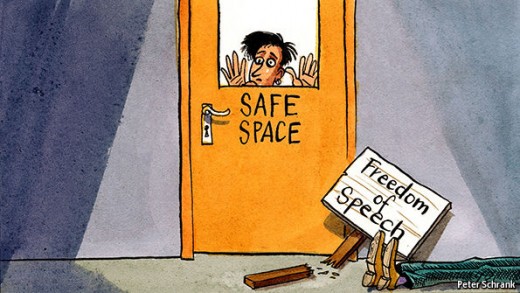

In the End, Safe Spaces Will Churn Out Snowflakes
Christina Paxson, president of Brown University, defended safe spaces in the opinion pages of The Washington Post this week. She rightly points out that “freedom of expression is an essential component of academic freedom” and as educators it is their “responsibility to subject old truths to scrutiny and put forward new ideas to improve them.” This ability to be open to debate has been decreasing in many lecture halls, despite Paxson’s defense of today’s educational environment.
She does not share the view that American college students want to protected from ideas that make them uncomfortable. She believes most students are in fact facing divisive and controversial issues such as racism and sexism head on. As for safe spaces, Paxson delves into the history of the term.
Safe spaces were initially a term used to describe forums where women’s rights issues could be discussed. Then, it was extended to other marginalized groups, such as gays, lesbians, bisexuals, and transgenders. They needed a place where they could freely express their ideas in an open forum. But this is not what a safe space is today.
As revealed in the aftermath of the Yale Halloween story last year, universities’ purpose is to create a safe place for students to be shielded from anything that could mildly offend them. So in a way, Paxson is right to say that college today is one big safe space, where ideas can be exchanged freely and without fear of retribution. Yet, as the fragile Yale student said last November to the master of her residence, “It is not about creating an intellectual space! It is not! Do you understand that? It’s about creating a home here. You are not doing that!”
Still, Paxson says at Brown, as at many institutions of higher education like Yale and Harvard, “we are not coddling our students — or limiting freedom of expression. Instead, we are teaching them, encouraging them and giving them the space to have the discussions that will make them better scholars and prepare them to best serve society.” Then why the censorship of conservative speakers? Why the stifling and the oversensitivity? How is Brown preparing its students to better serve society if they cannot be troubled with anything than runs counter to one’s beliefs?
This kind of identity politics that liberals are obsessed with these days has been toxic for our political discourse. By separating our society into classes and races, the Left is pushing us away from individualism and freedom, pitting the “oppressed” against the “oppressor,” or in other words, race-baiting. Afraid of being labeled racists, liberal administrators have mostly given up fighting for their professed principles, such as democracy, equality, and rule of law.
“Today’s students are willing to trade freedom for comfort,” wrote Julius Kairey, former member of the Young Leaders Program at the conservative Heritage Foundation. And yet, “They will end up with neither.” When asked what specific discrimination or oppression they have felt, these students recite what their liberal or even Marxist professors fed them: there is a “systemic racism” in our society today that keeps a certain identity group down.
Unfortunately, liberalism on college campuses has transformed into close-minded censorship.
All of this led author and head of the think tank Institute of Ideas, Claire Fox, to dub this generation of overly sensitive students as “Generation Snowflake.” By catering to this small group of radical leftists, college administrators are producing a whole generation of snowflakes, masses of Millennials growing up in a world where they believe it’s “their right to be protected from anything they might find unpalatable.”
To those students entering their college years or in the midst of them: challenge all assumptions, push the limits, debate the issues, learn all you can. Don’t be restrict yourself to one viewpoint. This is the time to expand your knowledge and find out who you really are. Don’t let ideology blind you to other points of view. Don’t give in to the safe space-trigger warning culture.
Safe spaces will only produce fragile little snowflakes. Simple as that.
